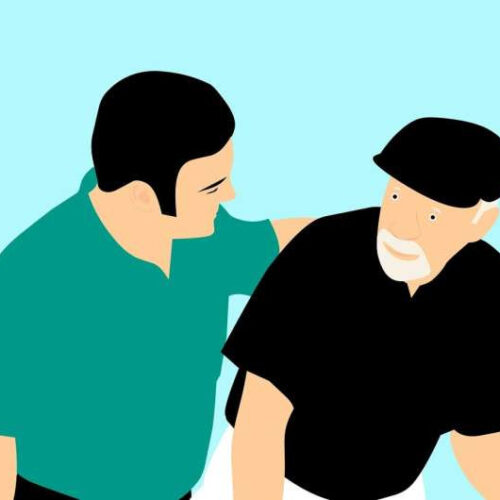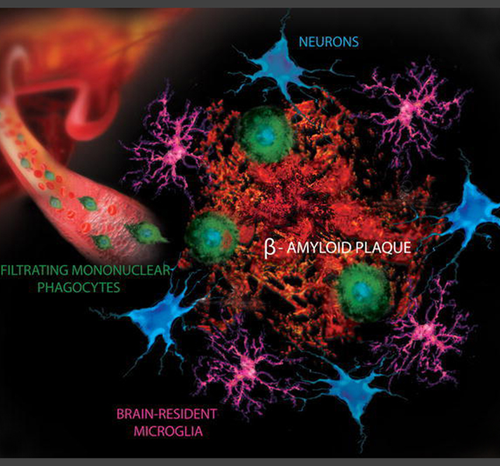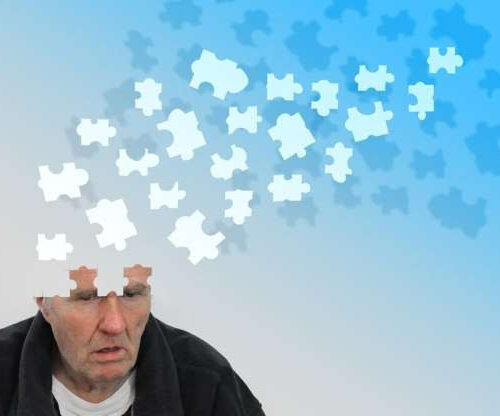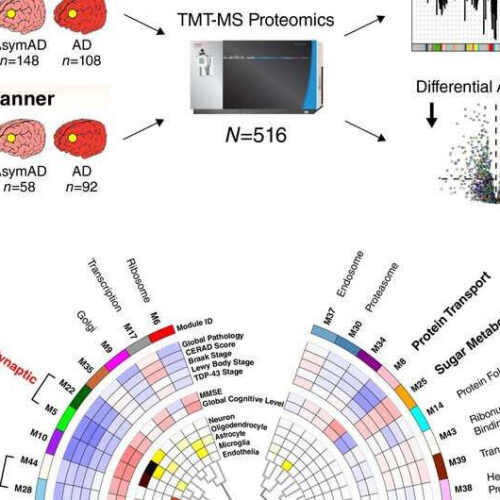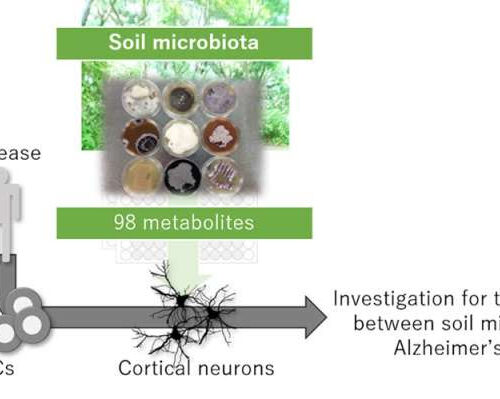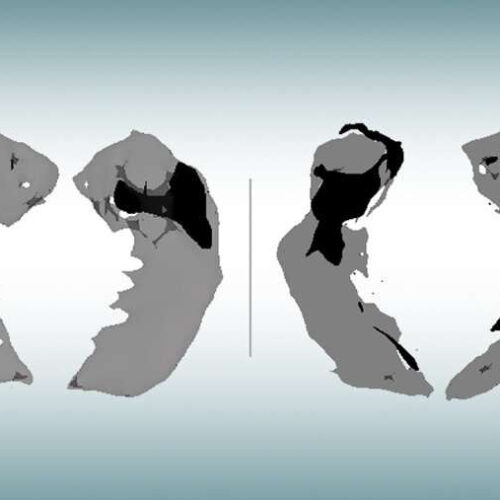BOSTON UNIVERSITY SCHOOL OF MEDICINE (BOSTON) – Living your best life at 35, ignoring cholesterol and glucose levels, may impact your chances of getting Alzheimer’s disease (AD) later in life. According to researchers from Boston University School of Medicine (BUSM), lower HDL (high-density cholesterol) and high triglyceride levels measured in blood as early as age...
Tag: <span>Alzheimer’s disease</span>
A complete transcriptomic analysis of astrocytes in Alzheimer’s disease
Reviewed by Emily Henderson, B.Sc. Mar 18 2022 An international group of researchers led by the UAB analyzed the genes that are expressed in neurons and astrocytes based on data from 800 individuals and compared what happens in Alzheimer’s patients and in people without diagnosed dementia. The study, published in Neurobiology of disease, highlights the...
Study finds cognitive decline key factor in predicting life expectancy in Alzheimer’s disease
by UT Southwestern Medical Center Credit: Pixabay/CC0 Public Domain Cognitive decline is the biggest factor in determining how long patients with Alzheimer’s disease will live after being diagnosed, according to a new study from researchers at UT Southwestern. The findings, published in the Journal of Alzheimer’s Disease, are a first step that could help health care providers...
Clearance of Senescent Cells is a Promising Approach to the Treatment of Alzheimer’s Disease
Today’s open access review discusses the growing burden of cellular senescence with age in the context of brain tissue and neurodegenerative disease. Cells become senescent constantly throughout life, largely the result of ordinary somatic cells hitting the Hayflick limit on replication, but also, and increasingly with age, due to a stressful, damaging, inflammatory environment. Senescent cells serve a useful purpose when present...
Damage to inner ear system predicts fall risk among people with Alzheimer’s disease
by Johns Hopkins University School of Medicine Credit: Pixabay/CC0 Public Domain A Johns Hopkins Medicine study of about 50 people with Alzheimer’s disease has added to evidence that damage to the inner ear system that controls balance is a major factor in patients’ well-documented higher risk of falling. Overall, the researchers say, their study found...
Could leaky blood vessels in the brain be a culprit in Alzheimer’s disease?
MEDICAL UNIVERSITY OF SOUTH CAROLINA IMAGE: A SCHEMATIC REPRESENTATION SHOWING SOME OF THE MAIN PLAYERS IN ALZHEIMER’S DISEASE. MODIFIED FROM “MONONUCLEAR PHAGOCYTES IN ALZHEIMER’S DISEASE” BY DAVID GATE AND OTHERS ON WIKIMEDIA COMMONS. CREATIVE COMMONS LICENSE 2.5: CREDIT: USE IN ACCORDANCE WITH THE CREATIVE COMMONS 2.5 LICENSE: CREATIVE COMMONS LICENSE Alzheimer’s disease is an enormous...
Study looks at blood test as possible diagnostic tool for Alzheimer’s disease
by Hillary Smith, University of Kentucky Credit: Pixabay/CC0 Public Domain The University of Kentucky’s Sanders-Brown Center on Aging has been around for nearly half a century. In that time, they have built an international reputation for best-in-class research into a disease that kills more people every year than breast and prostate cancer combined—Alzheimer’s disease. There...
Study unveils new protein-related changes in the brain of patients with Alzheimer’s disease
by Ingrid Fadelli, Medical Xpress TMT AD Protein Co-Expression Network. (A-C) 516 dorsolateral prefrontal cortex (DLPFC) tissues from the Religious Orders Study and Memory and Aging Project (ROSMAP, n=84 control, 148 AsymAD, 108 AD) and Banner Sun Health Brain Bank (Banner, n=26 control, 58 AsymAD, 92 AD) were analyzed by tandem mass tag mass spectrometry...
Dirt can modulate the pathology in Alzheimer’s disease
by Kyoto University Credit: Kyoto University Eating well, exercising regularly, and having a satisfying social life are all crucial to staying healthy. Sometimes, however, it can be the tiniest things that make the biggest difference. In this case, those tiny things are microorganisms, such as bacteria and fungi. The metabolites they release can have profound...
Damage early in Alzheimer’s disease identified via novel MRI approach
by Gerry Everding, Washington University School of Medicine in St. Louis An MRI scan of the hippocampus, the brain’s memory center, in an older person with no signs of cognitive decline (left) and a person of similar age with mild Alzheimer’s (right) has been analyzed with a new technique that shows where healthy brain cells...

